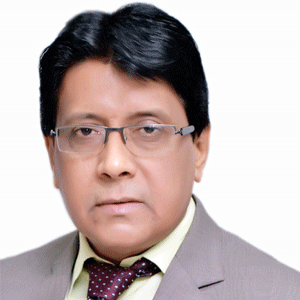
The manufacturing sector stands as a linchpin for societal and economic progress, contributing to the modernisation of several industries and mitigating heavy dependency on the same by generating employment opportunities within the secondary and tertiary sectors. Tata Precision Industries (India) a holds a prominent position as a top-tier manufacturer specializing in producing components and sub-assemblies for industries encompassing advanced technologies.
These industries range from Aerospace, Pharma, and Analytical Instruments to Telecommunication, Antenna, Automotive, Industrial, Defense, Space, and Life Sciences. The company boasts a state-of-the-art manufacturing facility equipped with essential machinery for Quality Control and product validation, ensuring the highest standards of excellence in their offerings. Suresh T Salunke, serving as the CEO of Tata Precision Industries, stands as a formidable force and a key contributor to the organization's numerous significant achievements.
During a candid interview with our team, he shared personal insights about his early life, entry into the industry, and the inner workings of the organization, and outlined his future vision and plans for the company.
Please elaborate on your proficiencies within the Aviation and Aerospace sector and share insights into your strategies for propelling company growth in this field.
I embarked on a career journey starting from the plant level, gradually advancing into the corporate sphere a path that has been both fulfilling and enriching. This transition has provided me with diverse industry experiences, offering a spectrum of learning opportunities each day. Challenges and crises are aspects I genuinely relish, drawing on my vast global experience to navigate them effectively.
My specialization lies in composite materials, encompassing Glass-fibre composite (GRP), Carbon- Fiber Reinforced Polymer (CFRP), stainless steel, titanium, nickel, and copper alloys, particularly pertinent in the Aviation and Aerospace industry. Leadership, in my view, hinges on understanding 'soft skills' and emotional intelligence, enabling effective influence by providing a clear sense of purpose, direction, and motivation to drive our vision and mission seamlessly. Reflecting on significant milestones, I've gained authority in the industry, manufacturing critical components and supplying top-tier aerospace firms. We have cultivated a loyal customer base, promoting our business through repeat engagements.
Can you please share your educational background and past industry roles that have equipped you with the necessary skills and knowledge for success in the business world?
I possess both international and domestic expertise in products within the Automotive and Industrial Sectors, encompassing bearings, allied parts, Aerospace, Defence and space components, high-end electrical products, FMGC, and manufacturing industries, including corporate business establishments.
Academically, I hold a Ph.D. in Engineering & Management, along with an M.Tech, MS in Mechanical Engineering from the USA, and an MBA from the UK. I am a Chartered Engineer and a fellow of FIE[I], and I have pursued Post Graduation in Import & Export Business Management. Additionally, I have acquired global patents and have contributed to the academic domain through published Engineering and Management research papers.
Share your proficiency in the Aviation and Aerospace sector and elaborate on your strategies for advancing company growth.
I consider myself a perpetual learner and avoid labelling myself as an expert. I possess expertise in five key domains: Research and Development, Manufacturing, Operational and Business Management, Strategy, and Business Development.
My enthusiasm for research and a keen interest in mathematics, analytical work, CAE, Design, and innovative thinking have been pillars of my corporate journey thus far. Our approach to driving growth involves the implementation of the 'NOISE Analysis' model, focusing on Needs, Opportunities, Improvements, Strengths, and Exceptions. This model guides our decision-making process, enabling us to assess the current state of the company and formulate a strategic roadmap for the future.

In your role as a business leader, what methods do you employ to motivate your workforce for enhanced performance, and what fundamental principles guide your approach to leadership?
The initial crucial aspect for an individual's success within the organization is firmly rooted in the processes. At our organization, we highly value the exchange of ideas, which often bring forth intricate and refined suggestions that were recognized and respected during my tenure with a prior employer.
Understanding the essence of effective delegation and its significance is paramount. In my belief, a well-structured system that upholds balance and respect among all stakeholders is vital. Everyone's input is encouraged and valued in this collaborative process, aligning with the growth objectives of the organization.
Meeting customer expectations & addressing their needs is a significant challenge faced by all companies. We tackled this by becoming a pivotal supplier by demystifying & prolific approach
What type of vision is necessary to effectively lead a business? Please elaborate on your visionary strategy and approach.
A leadership vision should embody personal ethics and values, serving as a roadmap for stakeholders and fostering trust. Engaging all employees, regardless of hierarchy, is crucial for executing long-term success plans. An effective leader is forward-thinking, collaborative, altruistic, and motivating. They possess the ability to understand the current reality, envision a future emerging from the present, and act in timely phases. Additionally, we engage and towering in international trade of high-end products within our established ecosystem.
Describe the type of vision needed for effective business leadership and elaborate on your visionary strategy.
To achieve the Organization's vision successfully, the initial crucial step is engaging employees across all levels and helping them recognize their significance within the Company. The CEO plays a vital role in effectively communicating and expressing their ideas to be implemented by the employees. Following this, gathering insights and suggestions from the employees on achieving the set objectives is imperative. This inclusive approach fosters a sense of pride and importance among the employees, knowing they play a vital role in the Organization.
We use cookies to ensure you get the best experience on our website. Read more...